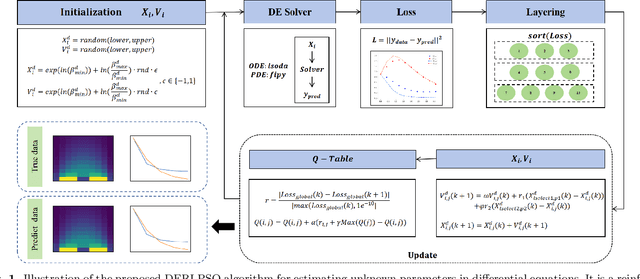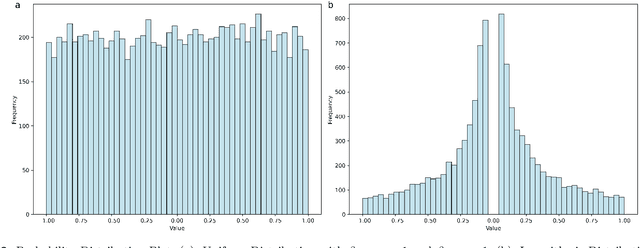Tinyi Chu
Estimating unknown parameters in differential equations with a reinforcement learning based PSO method
Nov 13, 2024



Abstract:Differential equations offer a foundational yet powerful framework for modeling interactions within complex dynamic systems and are widely applied across numerous scientific fields. One common challenge in this area is estimating the unknown parameters of these dynamic relationships. However, traditional numerical optimization methods rely on the selection of initial parameter values, making them prone to local optima. Meanwhile, deep learning and Bayesian methods require training models on specific differential equations, resulting in poor versatility. This paper reformulates the parameter estimation problem of differential equations as an optimization problem by introducing the concept of particles from the particle swarm optimization algorithm. Building on reinforcement learning-based particle swarm optimization (RLLPSO), this paper proposes a novel method, DERLPSO, for estimating unknown parameters of differential equations. We compared its performance on three typical ordinary differential equations with the state-of-the-art methods, including the RLLPSO algorithm, traditional numerical methods, deep learning approaches, and Bayesian methods. The experimental results demonstrate that our DERLPSO consistently outperforms other methods in terms of performance, achieving an average Mean Square Error of 1.13e-05, which reduces the error by approximately 4 orders of magnitude compared to other methods. Apart from ordinary differential equations, our DERLPSO also show great promise for estimating unknown parameters of partial differential equations. The DERLPSO method proposed in this paper has high accuracy, is independent of initial parameter values, and possesses strong versatility and stability. This work provides new insights into unknown parameter estimation for differential equations.
Rgtsvm: Support Vector Machines on a GPU in R
Jun 17, 2017
Abstract:Rgtsvm provides a fast and flexible support vector machine (SVM) implementation for the R language. The distinguishing feature of Rgtsvm is that support vector classification and support vector regression tasks are implemented on a graphical processing unit (GPU), allowing the libraries to scale to millions of examples with >100-fold improvement in performance over existing implementations. Nevertheless, Rgtsvm retains feature parity and has an interface that is compatible with the popular e1071 SVM package in R. Altogether, Rgtsvm enables large SVM models to be created by both experienced and novice practitioners.
 Add to Chrome
Add to Chrome Add to Firefox
Add to Firefox Add to Edge
Add to Edge